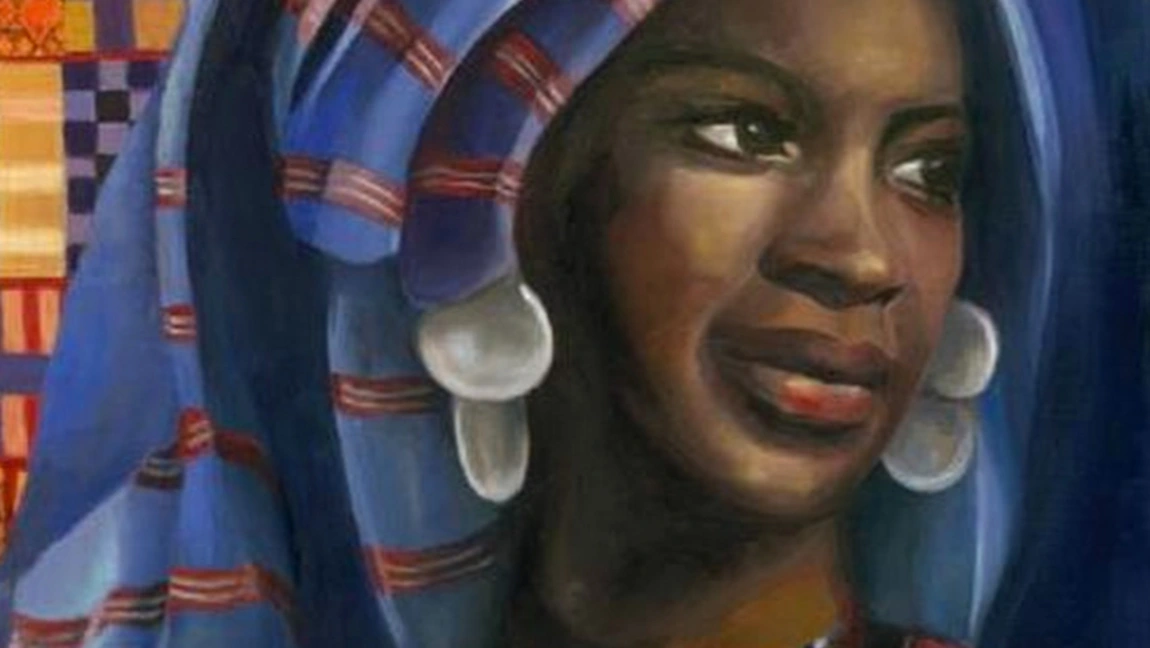This Nigerian scholar used tradition to promote girls’ rights

[Image description: An artistic rendition of Nana Asma'u.] Via southseattleemerald.com
Some of the most important histories come from what is forgotten. If you’ve never heard of Nana Asma’u, caliphate princess, poet, and educator, it’s likely because you received an education like mine, one that was restricted to the history of the Western world, and little else, in high school textbooks.
In what is now known as Nigeria, Asma’u was born in 1793. Her father was Usman dan Fodio, founder of the Sokoto Caliphate. This made her a princess, but instead of embracing a life of privilege and confinement, Asma’u blazed a path for girls’ education at a time when only men enjoyed those rights.
She was active in politics, education, and social reform. Her goal as a public figure was to educate and empower women throughout sub-Saharan Africa. Asma’u was quadrilingual in Arabic, Fula, Hausa, and Tamacheq Tuareg and her educational background were primarily in the Quranic studies shared by her father.

It is not surprising that Asma’u devoted her life to education; under her father’s sultanate, the Sokoto Caliphate was one of the largest empires in Africa and was the region’s political and economic hub. Using the pillars of Islam as the foundation of her teachings, Asma’u promoted women’s education, arguing that to bar women from the same opportunities as men were to ignore the talents God bestows to all people. By doing so, you were ignoring God’s will, and that was a sin.
It was not long before Asma’u gained a following of pupils, who eventually became teachers themselves, called “jajis”. Together, these women would literally deliver education to girls in isolated, rural areas. On foot, they’d travel from home to home and taught poetry, reading, writing, and philosophy. Those who trained girls to become educators themselves were called “yan-taru”, meaning “those who congregate together, the sisterhood”.
This system of education spread throughout the entire Caliphate, and even today provides the foundation for women’s education in northern Nigeria.
As an author, she has composed around 60-70 books on topics related to history, theology, law, and the role of women in Islam. She used the teachings of the Sunnah, spreading the value of living life under the example of the Prophet Muhammad. The Path of Truth, A Warning, II, and Sufi Women are some of Asma’u’s greater known works. They all use the pillars of Islam to teach women how to be exemplary in their roles as wives and mothers as taught in the Qur’an, as well as how to connect the spiritual self to daily life, and to link educated women in the Caliphate community to Muslim scholars throughout history.
Her legacy and influence continue to live on today in present-day Nigeria. Many Islamic education centers and women’s organizations are named after her. One of the most well-known institutions in her name is the Nana Asma’u University of Medical Sciences in the city of Sokoto, Nigeria.
Like students in today’s Nigeria, I found myself connecting to Asma’u’s legacy. Growing up in a fairly religious Muslim household, it was important to learn about a powerful female scholar of Islam that I could align with. Her legacy proves that Islam and education for everyone, regardless of gender, go hand-in-hand. Asma’u’s life and teachings gave a glimpse into my religion’s history that American high school would never have provided me, and that’s something women everywhere should celebrate.
Do you want to learn more about Nana Asma’u, her life, and her works? Read One Woman’s Jihad: Nana Asma’u, Scholar, and Scribe by Beverly B. Mack and Jean Boyd.
Can’t get enough Tempest history? Follow our official History Instagram account!
Get The Tempest in your inbox. Read more exclusives like this in our weekly newsletter!
Like this project
Posted Jun 5, 2023
A pioneer of women's education in Nigeria, Nana Asma'u promoted women's learning through spreading the word of Islam.
Likes
0
Views
16



